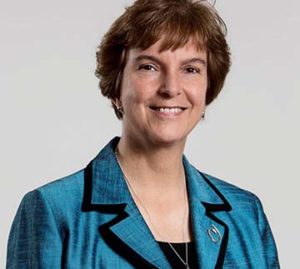March 3, 2019

Readings:
Reading 1: Sirach 27:4-7
Psalm: 92:2-3, 13-14, 15-16
Reading 2: 1 Corinthians 15:54-58
Gospel: Luke 6:39-45
People of God: It’s Time. And Overdue.
Context matters. I read this Sunday’s readings with different eyes and heart after last weekend’s Vatican summit on sexual abuse. I lived in Boston when in early 2002 the scandal of church sexual abuse and cover-ups made daily headlines for almost a year. I was working on my doctorate at the time and assisting an undergraduate theology course that included service-learning. One service-learning requirement was reading the front and metro sections of the Boston Globe newspaper. The scandal was daily depicted in horrifying detail. I truly didn’t know if or how the students would choose to remain in the Roman Catholic Church.
At the same time, I was working on a dissertation related to HIV and AIDS. The pandemic was truly global, and my desire was to offer even a small contribution to stem the tide. I looked at underlying causes, views of the person that were being lost and what ethics directions were needed to shift the tide. As I saw how the pandemic was working on every level, I realized what UNAIDS knew much earlier — that prevention, treatment and care for those infected and affected needed an all out effort on every level to see what would work. Each person and organization had an offering to make, and it had to be done together to make the difference.
Our readings this week offer similar reminders. “When a sieve is shaken, the husks appear; so do one’s faults when one speaks” (Sirach 27:4). Luke’s parable speaks of blind spots, the splinters large and small, which prevent us from seeing. Good trees don’t bear rotten fruit. And in the midst of this we hear the reminder that if we are truly disciples, followers of Jesus, we will have what we need to speak and act in the manner of Jesus.
We have with us Jesus’ mercy, beautifully defined by Jim Keenan, SJ, as “a willingness to enter into the chaos of another’s life.” We can enter this chaos that is front and center in the church as we approach Lent. We must, for this is the call of each of us who proclaim, “The church is the people of God.” We must pray, listen, speak, and act together. We begin by asking to see our own blindness. Too often we cannot see our own blind spots — simply because they are blind spots. We help one another remove the splinters or planks in our eyes, personally and institutionally. Truth-telling, listening, praying. Homilies. Listening and peacemaking circles. There are conversations we must have. There are actions still to be taken.
Our God and tradition lack not for imagination and creativity. Each must see what is calling in our parishes, classrooms, homes, ministries and more. Words, presence, actions, policies, systemic change, lament, rituals. This is not a task alone for bishops, priests, religious or families. It’s for the entire People of God. This time calls for pruning, uprooting, as well as planting. God is not whispering. God is crying out alongside the people of God. At every level, the Spirit longs to transform.
Different Lenten practices may call as we encounter the Paschal Mystery in this time. We can walk this road, for even as we know Good Friday, we are an Easter people.
St. Paul encourages: “Therefore, my sisters and brothers, be firm, steadfast, always fully devoted to the work of the Lord, knowing that in the Lord your labor is not in vain” (1Cor. 15:58).
It’s time.
Maria Cimperman, RSCJ
Associate Professor of Catholic Theological Ethics
Director of the Center for the Study of Consecrated Life (CSCL)